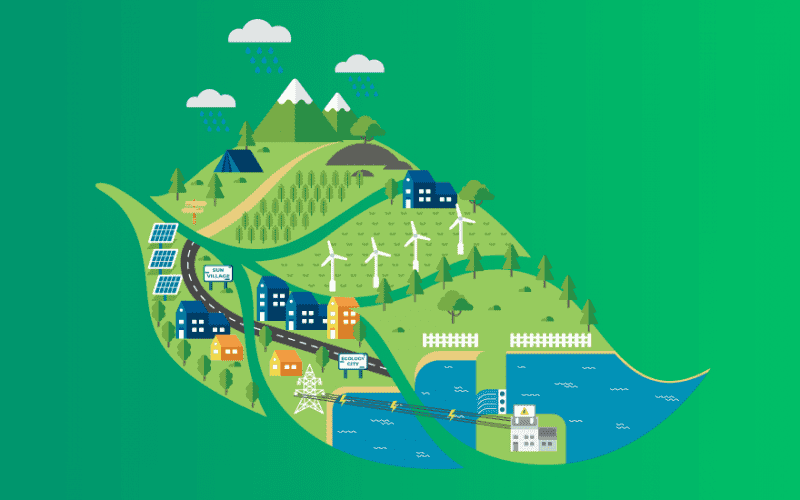With the rise in population and rapid urbanization, the natural resources on Earth are depleting. This has thus given rise to many counter-disciplines that are designed to work for the revival of the planet. One such area of study which follows the “Save Earth, Save Life” ideology is the Environmental Law. The need to conserve the environment needs no explanation in today’s time because it is not an issue faced by a particular section of society but by demographies over the globe. Thus, in this blog, we will discuss the Environmental Law field, the subjects, and its career prospects in detail.
This Blog Includes:
Why do We Need Environmental Laws?
Environmental or Natural Resource Law is a subdivision of legal studies that deals with the study and enforcement of rules, regulations, and international agreements set in order to safeguard the environment. These laws are made at the local, state, and national levels to regulate the use of natural resources, forests, and minerals, protect animals, curtail pollution, etc. Some of the major concern areas where Environmental Law graduates can put their knowledge to use are:
- Air Quality
- Hunting and Fishing
- Chemical Safety
- Contaminant Cleanup
- Forest Protection
- Water Quality
- Waste Management
- Sewage Treatment
Curriculum and Courses
There are a limited number of courses that fall under the category of Environmental Law. Mostly, they are offered at the postgraduate level and vary from LLM and Diploma to Certificate. The curriculum of these programs is designed to impart extensive knowledge of the environment and related laws and make students aware of thematic environmental issues. Environment Protection Mechanisms, Introduction to Environment and Law, National and International Environmental Law and Policy, and Practical Training are some of the core subjects taught in these programs. Further, the on-the-job training equips students with the necessary skills to build a strong career in this field.
Environmental Law: Courses
The duration of a course depends upon the type of program one chooses. While LLM and Diploma can run for 1 to 2 years, the duration of certificate courses can vary from 3 months to a year. Here are some popular Environmental Law courses offered by various universities:
- LLM in Oil, Gas and Renewable Energy Law
- LLM International Law and the Environment
- Master in Environmental Policy and Law
- LLM in Energy and Climate Law
- LLM/MSc in Environmental Policy and Governance
Top Universities To Study Environmental Law
Even though Environmental & Sustainability Law specialization programs have become common in almost all law schools around the globe yet pursuing it from the top institutes is a charm. Here is a list of the best law schools for studying the course:
- University of California, Berkeley
- University College London
- University of California, Los Angeles
- Vermont Law School, USA
- University of Melbourne, Australia
- University of Stirling, Scotland
- Utrecht University School of Law, Netherlands
- University of Eastern Finland
- University of Calgary, Canada
- University of Colorado at Boulder, USA
- Universität Lüneburg, Germany
- Keele University, UK
- University of Kassel, Germany
- University of Groningen, Netherlands
Career Prospects
The Environmental Law graduates work closely with government and private organizations to either represent the firm at national and international levels or to draft environmental related-policies. The big corporate houses hire these professionals to conceptualize sustainable business practices that they can adopt. Environmental lawyers are in high demand in countries like India, the USA, the UK, etc. Apart from being a lawyer, the graduates can also work as Legal advisors, NGO workers, environmental activists, consultants, policy strategists, etc. Excellent verbal and written communication skills, sound knowledge of laws pertaining to the environment, and good negotiation and advocacy skills are some of the traits which are required to become a successful professional in this field.
Also Read: Learn How to Make a Career in Law
FAQs
An environment lawyer is responsible for working on numerous projects along with the laws related to clean technology, climate change, management of land, water law, sustainability, and so on.
If you want to become a successful environment lawyer, make sure you choose a reputed university to [pursue your degree. You also need to make sure you have completed your UG degree.
You need to have numerous essential skills such as good research skills, critical thinking, negotiation skills, communication skills, problem-solving skills, etc.
We hope this blog was successful in drawing light on every aspect of Environmental Law. If you are passionate about the conservation of the environment but are confused about which course to study, then the counsellors at Leverage Edu will mentor you in selecting a course that aligns with your professional goals using our AI-enabled tool. You can also book a free 30-minute career counselling session with our study abroad experts. Hurry up, book your slot now!
-
Great information career in Environmental Law

 One app for all your study abroad needs
One app for all your study abroad needs





















 45,000+ students realised their study abroad dream with us. Take the first step today.
45,000+ students realised their study abroad dream with us. Take the first step today.


1 comment
Great information career in Environmental Law